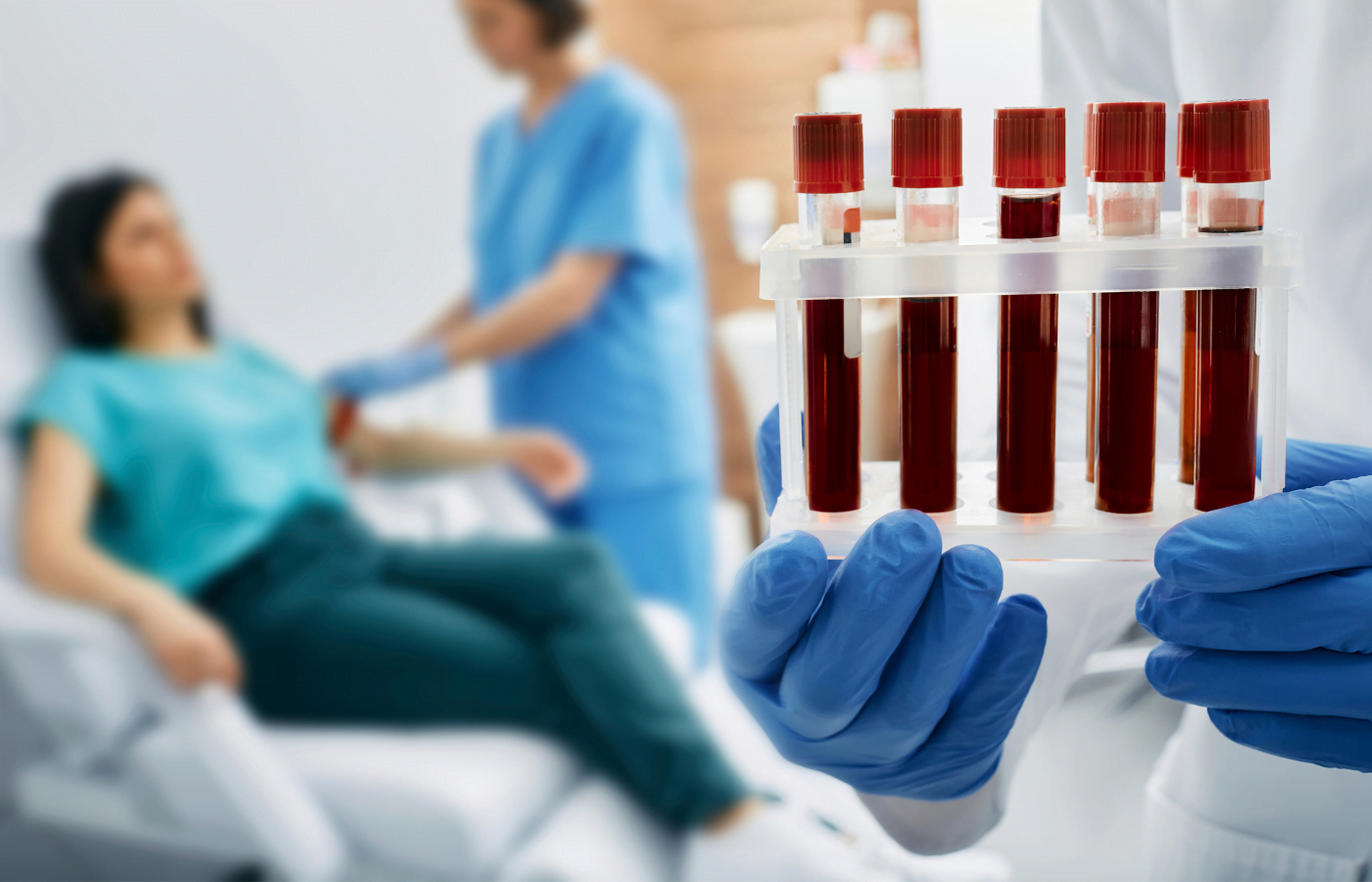
Amyloidosis is a rare but serious condition caused by the abnormal buildup of amyloid proteins in organs and tissues. These proteins can affect the function of vital organs, leading to severe health complications. Understanding what is amyloidosis, its symptoms, and amyloidosis treatment options is crucial for early diagnosis and management. If you are looking for a blood test centre near me to diagnose amyloidosis, Diagnopein offers advanced diagnostic services to help detect this condition at an early stage.
Amyloidosis occurs when amyloid proteins accumulate in different organs, interfering with their normal function. This condition can affect multiple organs, including the heart, kidneys, liver, nervous system, and digestive tract. There are different types of Amyloidosis, including: AL Amyloidosis (Primary Amyloidosis): The most common form, linked to abnormal plasma cells. AA Amyloidosis (Secondary Amyloidosis): Often associated with chronic infections or inflammatory diseases. Hereditary (Familial) Amyloidosis: Caused by genetic mutations passed down in families. Dialysis-Related Amyloidosis: Occurs in long-term dialysis patients due to protein buildup.
Amyloidosis results from the overproduction of amyloid proteins, which the body cannot break down effectively. While the exact cause varies by type, some common risk factors include: Chronic infections or inflammatory diseases like rheumatoid arthritis , Certain cancers, including multiple myeloma , Genetic mutations , Long-term dialysis treatments If you experience any concerning symptoms, a visit to a blood test centre near me can help detect abnormal protein levels in your blood.
Amyloidosis symptoms depend on which organs are affected. Some common signs include: Fatigue and weakness – A feeling of constant tiredness. Swelling in the legs and ankles – Due to fluid retention. Shortness of breath – If the heart is affected. Numbness or tingling in hands and feet – Due to nerve damage. Unintentional weight loss – A common sign of amyloidosis. Enlarged tongue – A symptom specific to AL Amyloidosis. Skin changes and bruising – Especially around the eyes. If you notice any of these symptoms, consult a doctor and visit a blood test centre near me for further evaluation.
Early detection is crucial for managing amyloidosis effectively. Doctors may recommend: Blood and Urine Tests: To detect abnormal amyloid proteins. Biopsy: A small tissue sample is examined for amyloid deposits. Imaging Tests (MRI, CT Scan): To assess organ damage. Echocardiogram: Checks for heart-related complications. Looking for a blood test centre near me? Diagnopein provides reliable and advanced tests to detect amyloidosis.
There is no complete cure for amyloidosis, but treatments can help manage symptoms and slow disease progression. Amyloidosis treatment options include: Medications: Chemotherapy drugs can help reduce amyloid protein production. Stem Cell Transplant: Used in AL Amyloidosis to replace damaged cells. Targeted Therapy: Newer treatments that focus on reducing amyloid buildup. Organ Transplant: In severe cases, a kidney, liver, or heart transplant may be needed. Lifestyle changes like a healthy diet, regular exercise, and avoiding stress also help in managing symptoms.
Amyloidosis is a complex disease that requires early diagnosis for effective management. Knowing what is amyloidosis, its symptoms, and available amyloidosis treatment options can help in timely intervention. If you’re experiencing any symptoms, visit a blood test centre near me like Diagnopein for expert testing and accurate diagnosis.